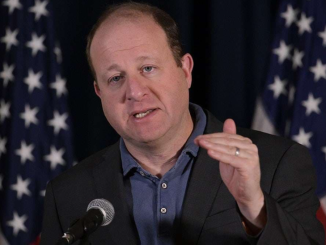
Michigan’s House has passed a bill banning a range of so-called hate speech, advancing it to the Senate, the last hurdle before the Democratic governor, Gretchen Whitmer, will have to choose whether to sign the end run around the First Amendment into law.
Bill 4474 would lubricate the slippery slope about which free-speech advocates used to warn when defending even odious acts such as, say, the right of Nazis to march in Skokie, Illinois. That was a case argued with success at the Supreme Court by the American Civil Liberties Union in 1977.
Concerns about a chilling effect on speech by banning outrages like burning the American flag or suspending a crucifix in urine seem to have disappeared as well, along with Voltaire’s declaration, “I may disagree with what you say, but I will fight to the death for your right to say it.”
The legislation’s language is broad enough to raise concerns. It states that “a person is guilty of a hate crime if that person maliciously and intentionally does a number of things any of the following to an individual based in whole or in part on an actual or perceived characteristic of that individual listed.”
Anyone who “intimidates another individual” from favored groups would be subject to a felony punishable by a maximum prison sentence of five years and fines up to $10,000. Just using what are deemed the “wrong pronouns” — say, refusing to call your toddler son “she” — would qualify.
Malice and intimidation are both open to interpretation, empowering individuals to seek legal redress based on feelings, even about such innocuous things as the American flag. In a 2018 piece for WNYC News, Arun Venugopal wrote “some argued that in certain contexts … flags are intimidating, even scary.”
In 2019, Damon Young wrote in Time that two American flags, including “wrapped around an AR-15 on a snapback baseball cap, were intended to intimidate.” For those who like the sound of that, imagine handing your political foes the same power to criminalize a Mao T-shirt or chant of “No justice, no peace.”
The bill also criminalizes anyone who “damages, destroys, or defaces any real, personal, digital or online property,” such as a photograph. This is in line with Soviet laws that could land you in prison for spilling coffee on a picture of their dictator, Joseph Stalin, and would turn thousands of memes and parodies into hate crimes overnight.
The Irish singer, Sinead O’Connor, could have been prosecuted for tearing up a photograph of Pope John Paul II on “Saturday Night Live,” as he did in 1992. It’s impossible to imagine all the potential scenarios, which is why the founders believed the best answer to objectionable speech was counter speech, not regulation.
Insults were hurled like daggers when the Bill of Rights was written. Yet today, even a favorite schoolyard retort to barbs is cast in a dim light. A resident of Washington State, Douglas Patterson, wrote in a 2017 letter to the Yakima Herald-Republic that the adage, “Sticks and stones will break my bones, but words will never hurt me” was “not accurate, as words can be used as weapons…”
Michigan’s proposed statute would also invite confusion over just who’s off-limits. It would be acceptable to intimidate unless it’s done based on perceived “religion, sex, orientation, genre identity of expression, physical or mental disability, age, ethnicity, national origin” or “association or affiliation” with such groups.
A Detroit native, Derek Hunter, host of “The Derek Hunter Podcast,” predicts Ms. Whitmer will sign the bill. “This is what happens when Democrats get complete power,” he tells the Sun. “They claim to care desperately for the rights of people they declare to be victims and do so at the expense of the rights of everyone else, largely people who don’t vote for them. That’s not a coincidence.”
Being offended has already been weaponized and now intimidation will serve the same purpose. If Michigan accepts the premise that words are to be regulated as weapons, others will follow, empowering partisans to prosecute those whose speech they dislike.
Expect it to be done with the promise of good intentions, which pave the road — and the slippery slope — to hell.
* Article From: The New York Sun


